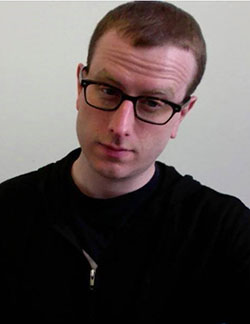

Josh Shepperd, assistant professor of media and communication studies, is serving as the lead faculty advisor on a prestigious National Endowment for the Humanities grant for collecting and preserving public media history. The grant is for a project called “Unlocking the Airwaves: Revitalizing an Early Public and Educational Radio Collection.”
“Unlocking the Airwaves” is a collaborative effort between The Catholic University of America, University of Wisconsin, University of Maryland, the Library of Congress, and WGBH, and is one of 199 humanities projects the NEH has funded through $18.6 million in grants. The grant funds the creation of a comprehensive online collection of early educational public radio content from the National Association of Educational Broadcasters from between 1926 and 1967.
Through his position as the director of the Library of Congress’s Radio Preservation Task Force, Shepperd helped to assemble the team and will serve as a content expert in analysis of historical data. Coding and project organization will be conducted by principal investigators and primary grant recipients Stephanie Sapienza at the University of Maryland Institute for Technology in the Humanities, and Eric Hoyt at University of Wisconsin-Madison.
Working in conjunction with audio-visual materials available at the American Archives of Public Broadcasting, a collaboration between WGBH and the Library of Congress, Sapienza and Hoyt will photograph primary documents, such as program development notes and scripts; make the documents searchable; and construct a database. Shepperd said he feels honored to be working with these institutions. He said that the investigators are building the interface and providing the “genius” behind the project.
Of his role as lead faculty advisor, Shepperd said, “I know the history and contribute to the project a knowledge of who the historical figures are, what the programs are, what the institution was, and what the policies were at the time.” Shepperd is currently working on two books on the origins of NPR and PBS, and is one of the few scholars in the country with this expertise.
Shepperd said that research into public media history is overdue. “Public media not only has an important institutional history. Public and educational programming has chronicled many key local and national events since the 1930s.” Shepperd said, in addition to increased access to media history, “Unlocking the Airwaves” will broaden educational possibilities.
“This project is great because it is an opportunity to open a new area of research within film and media studies into noncommercial media industries, a topic that has support at the federal level.” He added, “Catholic University is in a unique position in that we have proximity to many federal institutions and archives. We have a great library and information science department and there are so many opportunities for the University to collaborate with local and federal institutions, this project serving as one example for what’s possible.”